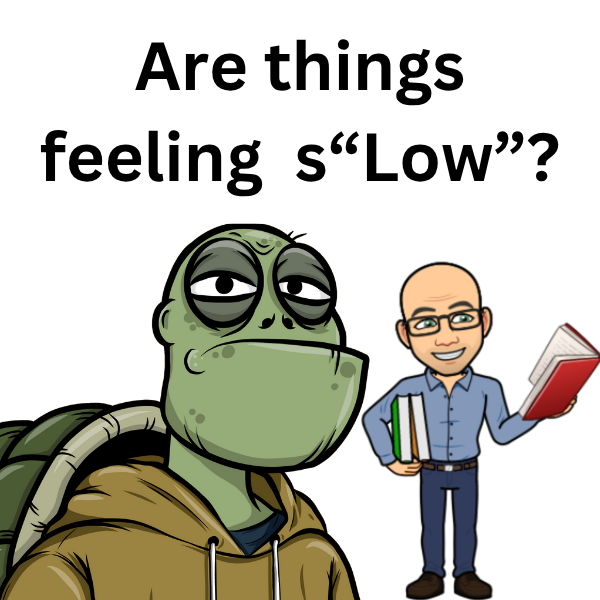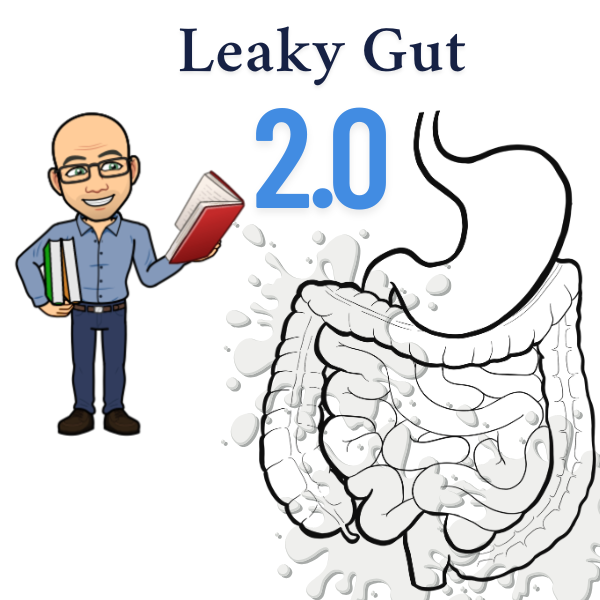Gastritis and its impact
Steve Irsfeld RPh • February 5, 2025
yes, we are talking Tummy Trouble or

As promised, today’s article will focus on inflammation in the GI tract also known as Gastritis. Inflammation is often the root cause of many diseases, and that concept is no different in the GI tract. The two areas most affected by inflammation are the stomach, where we can have gastritis, and the colon, where inflammatory bowel disease can occur. Today’s article will focus on inflammation of the stomach today.
Have you ever had an endoscopy? An endoscopy is where the doctor puts a camera down your throat and looks at your esophagus, stomach, and sometimes your small intestine or duodenum. They are looking for damage or inflammation of the stomach lining or mucosa.
Gastritis is when the stomach lining or mucosa is inflamed. Think of gastritis as a sunburn on the lining of the stomach. The stomach lining contains special cells that produce acid and enzymes, which help break down food for digestion, and mucus, which protects the stomach lining from acid. When the stomach lining is inflamed, it produces less acid, enzymes, and mucus. Gastritis is sometimes mistakenly used to describe any symptoms of pain or discomfort in the upper abdomen. Many diseases and disorders can cause these symptoms, and most people who have upper abdominal symptoms do not have gastritis.
Gastritis may be acute or chronic.
Sudden, severe inflammation of the stomach lining is called acute gastritis. Inflammation that lasts for a long time is called chronic gastritis. Chronic gastritis may last for years or even a lifetime if it is left untreated.
Two of the more common types of gastritis are non-erosive and erosive.
The most common cause of non-erosive gastritis is H. pylori infections. H. pylori is an opportunistic infection in the stomach that I discussed in last week’s article and has a link to low stomach acid. Other causes include autoimmune disorders affecting the stomach lining, Crohn’s disease, pernicious anemia, and some pathogens, bacteria, virus, fungi, and parasites.
Erosive gastritis is a type of gastritis that can wear away the stomach lining without causing significant inflammation. Bleeding, erosions, and ulcers are the results of erosive gastritis. The chronic overuse of NSAIDs can cause erosive gastritis.
NSAIDs
are products like ibuprofen and naproxen that at one time were only available by prescription but now can be purchased over the counter. It is not uncommon for people with pain and inflammation to take NSAIDs routinely, unaware of the potential side effects that can occur over time. There is some irony to the fact that you consume something to help with pain and inflammation, yet it can cause inflammation to the lining of your stomach. Additional causes of erosive gastritis include alcohol, cocaine, and radiation.
One of the crazy things about gastritis is that the symptoms don’t always make sense.
Some patients experience pain and discomfort, while others don’t have any symptoms. The most common symptoms include upper abdominal discomfort or pain, nausea, and vomiting. Erosive gastritis is a little more violent as the lining of the stomach can bleed, causing bloody vomit, black and tarry stools, and blood in the stools.
Conventional treatments for gastritis are relatively limited, focusing on eradicating H. pylori if it is present and making the pH of the stomach less acidic by taking antiacids, H2 blockers (famotidine), and Proton Pump Inhibitors (omeprazole). When the pH of the stomach is less acidic, it will not be an irritant to the inflamed tissue or sunburn, and the hope is that healing will take place.
When it comes to non-conventional treatments, one of the most common is zinc carnosine, which is well-documented in scientific research to support GI integrity and intestinal permeability. Zinc carnosine has been studied in Japan for years and has studies showing that it can improve the integrity of the stomach lining and offset the side effects of NSAIDs.
We are familiar with the properties of zinc and that it is an essential mineral that plays vital roles in the GI tract, gene expression, stabilizing cell membranes, immune function, reproduction, sexual maturation, and other biological processes. When zinc is attached to carnosine, the resulting complex supports gut ecology, permeability, and the mucosa.
Research suggests zinc-carnosine
stimulates healthy gut reactions and helps a healthy gut response to everyday life.
Carnosine is a dipeptide (made up of the amino acids beta-alanine and L-histidine) in muscle cells and nerve cells. It is suspected that carnosine supports tight intercellular junctions and cell-mediated immunity.
L-glutamine
is a crucial amino acid for supporting a healthy GI tract, notably by maintaining the integrity of the intestinal wall. L-glutamine is the most important fuel for intestinal tissue, with research showing it is imperative for gastrointestinal integrity and a healthy immune response.
Glucosamine HCl
is an amino sugar precursor to many glycosylated proteins and lipids throughout the body. A recent study suggests that supplemental glucosamine HCl modulates the inflammatory response in the gastrointestinal tract, which may promote a healthy gut environment.
Licorice root
is abundant with novel phytochemicals that help soothe the gastrointestinal tract by supporting the mucosal lining of the intestines and stomach. Deglycyrrhizinated (DGL) licorice, free from substantial parts of glycyrrhizin that can affect blood pressure, is a safer option for long-term use.
Additional natural ingredients that help to soothe the GI tract are apple pectin, aloe vera leaf extract, slippery elm, and mucin.
These plant-derived biologically active constituents support and comfort the gastrointestinal tract. The benefit comes from the ingredients contained in each nutrient, such as vitamins, enzymes, minerals, mucopolysaccharides, fiber, lignin, saponins, and amino acids. There is a combination product
that we use for this.
I hope this article sheds some light on gastritis and what might be going on you're your gut if you have been diagnosed with that condition. While conventional products address the symptoms, natural products may be a better option to help deal with inflammation in the GI tract and they have excellent data to support their recommendations. If you are not getting the results you would like with conventional treatments, these are options in your healthcare journey.
For more information on gastritis and gut health, call the pharmacy @ 701-483-4858 or stop in to schedule a consultation. Please visit my website at www.irsfeldpharmacy.com
to find this and other archived articles in the blog section.
Until next time be vigilant about your health!

Winter is long and harsh, so when summer hits, spending time outdoors is a must. Today's topic will explore natural ways to protect yourself from the sun and bugs and some natural remedies for injuries sustained while outdoors. I 'm a huge fan of spending time in the sun, as it has numerous benefits, primarily the production of vitamin D. However, too much of a good thing can end up being a bad thing, and excessive sun exposure can damage your skin over time. Sunburn, premature aging, and skin cancer are all risks of too much ultraviolet (UV) radiation. That's why wearing sunscreen can help prevent sun damage; however, not all sunscreens are created equal. Some contain chemicals that may be harmful to your body and the environment. Natural, non-toxic sunscreens offer a safer way to protect your skin. Most traditional sunscreens use chemical ingredients like oxybenzone and octinoxate. When washed into oceans, these can irritate the skin, disrupt hormones, and harm coral reefs. In contrast, natural sunscreens use mineral-based ingredients such as zinc oxide and titanium dioxide. These minerals sit on the skin's surface and physically block UV rays rather than being absorbed into the skin. Natural sunscreens are usually free from synthetic fragrances, preservatives, and dyes. They're often made with added ingredients like coconut oil, shea butter, aloe vera, and vitamin E to soothe and moisturize the skin. When shopping for a non-toxic sunscreen, look for products labeled "broad-spectrum," which means they protect against both UVA and UVB rays. Choose SPF 30 or higher for optimal protection, and ensure it's water-resistant if you plan to swim or sweat. Protecting your skin doesn't have to involve harsh chemicals. With natural, non-toxic sunscreens, you can enjoy the sunshine while keeping your body—and the environment—safe and healthy. Bug bites are a common annoyance during the summer months . Mosquitoes, ticks, fleas, and other insects can bite and cause itchy, red bumps. In some cases, bites can also spread diseases like Lyme disease and West Nile virus. While many people turn to chemical sprays for protection, there are safe and effective natural ways to prevent bug bites. One of the best natural methods to keep bugs away is using essential oils. Certain oils have scents that insects hate. Citronella, eucalyptus, lavender, tea tree, peppermint, and lemongrass oils are all known to repel bugs. You can mix a few drops of any of these oils with a carrier oil, like coconut or almond oil, and apply it to your skin. Wearing the proper clothing also helps. If you're going to be in a buggy area, wear long sleeves, pants, and socks to cover your skin. Light-colored clothing is better because it's less attractive to mosquitoes and makes it easier to spot ticks. Another way to prevent bites is to keep your environment bug-free. Remove standing water from flowerpots, birdbaths, or buckets since mosquitoes lay their eggs in water. Trim grass and clear away piles of leaves or wood, which are good hiding places for ticks and other insects. Using screens on doors and windows also helps keep bugs outside where they belong. Your diet also plays a role. Some people believe that eating garlic, onions, or taking vitamin B1 (thiamine) can make your body less appealing to insects. Although the science behind this isn't conclusive, many people swear by it, and it's a safe method worth trying. Natural bug repellents made from plant-based ingredients are available in stores. Look for ones with lemon grass and eucalyptus oil, which the CDC (Centers for Disease Control and Prevention) has approved as an effective mosquito repellent. These options don't contain DEET or other harsh chemicals, making them a better choice for people with sensitive skin. You can also make your natural bug spray. A simple recipe involves mixing 10 drops of essential oil with two tablespoons of witch hazel and two tablespoons of water. Shake well and spray it on your skin or clothes before going outside. Reapply every couple of hours for continued protection. Finally, be aware of the time of day. Mosquitoes are most active at dawn and dusk. Stay indoors during these times or take extra precautions if you need to be outside. Spending time outdoors is great for your physical and mental health, but outdoor activities sometimes cause minor injuries, such as cuts, scrapes, insect bites, sunburns, and bruises. Fortunately, many natural remedies can help you heal without using harsh chemicals. When you get a small cut or scrape, it's essential to clean the wound first . Rinse it with clean water to remove dirt and bacteria. After that, applying raw honey can help . Honey has natural antibacterial properties that help speed up the healing process. Another effective option is aloe vera gel, which helps reduce inflammation and soothe the skin. Once the wound is treated, cover it with a clean bandage and change it daily. Bug bites can be itchy and uncomfortable . A paste made from baking soda and water can relieve the itching. You can also try rubbing a slice of onion or dabbing apple cider vinegar on the bite to reduce swelling. Essential oils like lavender, tea tree, or chamomile can calm irritated skin. Mix a few drops with a carrier oil, such as coconut or olive oil, before applying. If you spend too much time in the sun, a sunburn can leave your skin red and painful. Aloe vera gel is one of the best natural remedies for sunburn. It cools the skin and promotes healing. You can also take a cool oatmeal bath or apply plain yogurt to soothe the burn, however the yogurt option might be a bit messy but if you have a dog in the house, they might like that option. Drinking extra water is important, too—it helps your body recover from dehydration and heat. Always keep a small natural first aid kit when heading outdoors. Include bandages, gauze, a bottle of diluted essential oils, aloe vera gel, honey packets, and arnica cream. These simple, natural treatments can help you recover faster and avoid unnecessary chemicals. With the proper care, you'll be back to enjoying nature in no time. I hope you found the information about natural tips for enjoying your summer helpful. It's time to go out and enjoy the great outdoors, and now you have some safe, non-toxic ways to do that. Need help with natural summertime outdoor solutions? Stop in or call the pharmacy at 701-483-4858. Please visit my website at www.irsfeldpharmacy.com to see this and other archived articles in the blog section. Until next time, be vigilant about your health!!

I had the opportunity to participate in a conference recently where the people in attendance were there to learn about a very specific topic. The speakers were extremely educational, and I was able to learn some new information pertaining to the topic of the conference. Most conferences cover a variety of different subjects but this one focused on one single medication, low dose naltrexone or LDN. LDN is a medication that has helped many of our patients at the pharmacy . Working with our patients, providers, and the medication, LDN, has been such a rewarding experience. It is difficult to grasp the many features of LDN but if I told you we make a medication that can: • Increase our bodies production of endorphins by up to 300% . Increasing endorphins helps with energy, mood, and improved well-being. • Increased endorphins are our bodies natural pain relievers. They stimulate the opioid receptor, resulting in pain relief. Tricking the body into producing its own pain reliever, without the side effects and addiction issues that go hand in hand with opioids. • Create an anti-inflammatory effect by blocking toll-like receptors, lowering our inflammatory burden. • Block the receptor responsible for creating inflammation in our brain and big nerves which is referred to as neuroinflammation. • Increase dopamine , our reward neurotransmitter benefitting the areas of mood and energy. • Affects up to 18 different receptors, all in a positive manner • Being used for over 140 different conditions and the number seems to increase every year. If you presented this information to me 37 years ago when I started my journey as a pharmacist, I would have probably laughed at you and thought you were crazy. Fast forward to today and I couldn’t be more excited about a treatment option for patients as it is hard pressed to find a patient that I think would not benefit from this medication. Honestly, it seems way too good to be true, but the number of patients that we help with this medication seems to grow every month which is a testimony to its effectiveness. What makes this medication so unique? The genius of it is that we are microdosing a medication meaning we are giving tiny amounts of the drug which yields such a different effect at the receptor site compared to the traditional dosing of this medication at doses of 50-200mg/day naltrexone blocks the opioid receptor 24/7. The difference between these high doses and what we compound is that we are making doses in the neighborhood of 0.5-4.5mg per day. The opioid receptor is still blocked, but it is for only a short time, about 4 to 6 hours. This blockage prompts a message to our brain that we need to produce more of our body's own opioids to override the blockage, which happen to be endorphins. I’m hoping the last couple of paragraphs isn’t giving you a buzz cut with all the technical information as it is difficult to tell the LDN story without getting in the weeds regarding the nuts and bolts of how it works. Let’s assume you have looked at the information, dialoged with your provider, and hopefully have been issued a prescription. If this doesn’t occur and you need help, the pharmacy is a great source to find providers willing to prescribe LDN. A critical piece to the decision-making process of prescribing and dispensing any medication is the need to look at the risk vs benefit of giving that medication. For many of our patients who have tried multiple conventional medications with limited effectiveness, they are often left with a compounded alternative where the benefit exceeds the risk. That is usually the case with LDN as it is a super safe compound dosed at tiny doses. What happens next? This is where you rely on the pharmacy team to help guide you as the clinical challenge with this drug is finding a dose that is optimal for you. There is not one dose of LDN that is effective for all patients. Some of our patients take tiny doses while others take high doses. Some patients take it once a day, while others take it 2-3 times a day. There is no one size that fits all . It takes time and patience for the patient, practitioner, and pharmacy to find the right dose so that we can optimize the effect of the medication. The key with LDN is patience as the medication can improve over time, up to 18 months. I listed the mechanisms on how this medication works but if I had to summarize it, I would simply say that LDN stimulates your body to produce its own pain relieving opioids and decreases inflammation throughout our body, brain, and big nerves by affecting the immune system. The list of different disease states that prescribers are using this for is lengthy, but it can be accessed at the following website: https://www.ldnresearchtrust.org/conditions . The LDN research trust is a non-profit organization committed to providing information to patients and practitioners about the benefits of LDN and they happen to be the organization who put on the conference I recently attended. In the perfect world, finding and fixing the underlying cause of any disease or illness should be our goal. As good as LDN is, in many cases, it does not address the underlying cause of the illness we are looking to treat, but, in many patients, once again, auto-immune patients stick out; they could spend their entire lives looking for the source or trigger for the out-of-control inflammation ravaging their bodies. Fortunately, LDN is a safe and in many patients, effective alternative to conventional medications. Why do I like LDN as a treatment option? Its safety profile is impeccable. It has some side effects, mainly centered around sleep disturbances, but we have options to help offset those side effects. Side effects tell us that we have a doing issue and possibly need to decrease the dose. Lastly, it is highly affordable for most patients. My staff and I would be pleased to help you, so stop by the pharmacy or call to schedule a consultation to see if LDN might be a treatment option for you or a loved one. Please visit my website at www.irsfeldpharmacy.com to find this and other archived articles in the blog section. Until next time, be vigilant about your health!!

Many of my articles are about things in your gut because your intestinal tract is essential to overall health. The quote " all disease begins in the gut" comes from Hippocrates, the father of medicine, who lived around 400 BC. If you ponder that quote, it doesn't take long to understand that if our gut isn't healthy, it can affect other areas of our body. Today's article will dive a little deeper into the process of digesting fat and the role of both the liver and gall bladder. The gall bladder is a pear-shaped organ just below the liver and protected by your rib cage on the right side of your chest. The gall bladder works as a storage reservoir for bile produced by the liver. When we eat a meal containing fat, bile is secreted by the gall bladder into the small intestine, emulsifying the fat to aid its absorption. Emulsifying fat is simply the physical act of breaking down large fat clusters into smaller globules , also known as micelles. These smaller globules have a greater surface area and can be better broken down by enzymes excreted from the pancreas, specifically lipase. Fat is often considered harmful or unhealthy, but it is an essential nutrient converted into energy in our bodies. Fat is essential as it is necessary to absorb specific vitamins and minerals and is a building block for cell membranes and the insulating-like cover of nerves. Fat also plays a role in blood clotting, muscle movement, and, my favorite, inflammation. We can see and appreciate the benefits of fat; however, there are good, healthy fats and fats that can present problems. Good fats include poly-unsaturated and mono-unsaturated fats; trans fats are harmful, and saturated fats fall somewhere in the middle. What might be some telltale signs that we are having problems digesting fat? Our stools tell us a lot about what is going on in our digestive system. When a person passes oil in their stools, has stools that float in the toilet, or has an oily sheen in the water, it is most likely due to them not breaking down fat in their gut. Some of the causes could include insufficient bile production by the liver, the gall bladder's inefficiency in pumping bile into the GI tract, gall stones, or having too much fat in our diet. One avenue to pursue is increasing the liver's ability to produce bile, which can be accomplished by taking choleretic agents. Choleretic agents increase the volume of bile produced by the liver . Artichoke extract and beetroot powder are two herbs that have choleretic activity. Cholagogues offer another solution: agents that promote the healthy flow of bile from the liver and gall bladder into the intestines. Artichoke and beetroot work are again beneficial, along with dandelion root powder, tangerine extract, and gentian extract, all of which positively support the impact of fat accumulation in the liver. Many patients with gall bladder issues choose to have their gallbladders removed, which is a permanent solution to a gall bladder's pain and the GI issues it presents when it is not functioning optimally. Having a cholecystectomy or gall bladder removal can be a fix to the pain but can potentially lead to a life of digestive problems. Once the gall bladder has been removed, there is no reservoir for bile to collect. Instead of being stored, the bile is continuously released from the liver into the small intestine. Bile is available to break down fat, but when eating a fatty meal, a person does not get a bolus or big release of bile to help digest the fat. Many patients who have had their gallbladders removed don't have any problems. However, some will continue to have GI issues. What can be done if you have ongoing adverse effects after having your gall bladder removed? The first would be to adjust your diet, requiring you to eat foods lower in fat content, ideally less than 3gm per serving, increase your fiber intake, and eat smaller meals. A well-balanced diet with plenty of fresh fruits and vegetables, along with lean proteins, in general, is a good idea. Bile salts and ox bile are dietary supplements that can be taken at mealtime to help digest food . They both help to emulsify fat, allowing your body to digest and absorb the fat. These supplements are a bolus bile substitute taken at mealtime instead of having a gall bladder. They can be taken with pancreatic enzymes, including lipase, to help further break down the fat. If you suffer from one of the symptoms of a gall bladder that is not functioning optimally, stop by the pharmacy and ask for a free sample of one of our digestive enzymes that focuses on breaking down fat. For patients with many GI issues, we recommend taking our GI Quiz. The quiz helps guide us on product recommendations for specific areas of the GI tract. Please request the questionnaire and let us help you with any underlying issues. Gall bladder and fat digesting issues are common to many in our population. This article will provide some guidance and options for better managing these issues. One of our patients recently took the GI quiz as she was struggling with many different GI symptoms. Her scores were off the charts. I made a couple of supplement recommendations, and when she came back a month later, her scores were significantly improved, and the GI symptoms that kept her from getting out and about were nearly gone. This is a classic example of not settling and continuing to search for solutions she eventually found. If you struggle to find solutions for your unhealthy gut, call the pharmacy at 701-483-4858 or stop in to schedule an in-person or phone consultation. Please visit my website at www.irsfeldpharmacy.com to see this and other archived articles in the blog section. Until next time, be vigilant about your health!!

Speaking with patients regarding questions on their thyroid medications is a common occurrence at our pharmacy. The reason may be due to the high incidence as the estimated number of patients taking medication for hypothyroidism or low thyroid in the US is about 30 million patients, or about 8% of the population; however, the data estimates vary somewhat depending on the source. In addition, there are potentially another 5 million patients with undiagnosed and, therefore, untreated hypothyroidism. Women are seven times more likely to develop thyroid disease than men . Hashimoto's, an autoimmune thyroid condition, affects up to 2% of the population. As you can see, the statistics indicate that this is a health concern in society today. Some basics about the thyroid : The thyroid gland is butterfly-shaped and located below your Adam's apple in the neck. When healthy, you wouldn't be able to tell it is even there, but if you have thyroid issues, it can become inflamed and have nodules on it. The gland itself produces thyroid hormones, which are responsible for metabolism, body temperature regulation, and growth and development throughout the body. The thyroid hormones include T4 and T3, with T4 being the primary thyroid hormone. T4 is an inactive hormone . The T in T4 and T3 stands for Tyrosine, and four refers to the four iodine molecules attached to Tyrosine. T3 is the active form of thyroid , which comes from T4. The de-iodinase enzyme converts T4 into T3; this enzyme takes away an iodine molecule from T4 to make T3. The enzyme can either channel this process to an active form of T3, which is the usual conversion, or it will deactivate it by converting it to Reverse T3 or rT3, an inactive form. Several versions of the de-iodinase enzyme do different things in breaking down T4 to T3. The de-iodinase enzyme needs the micronutrient selenium to function correctly. Here is a big takeaway from this information: Under stress, the enzyme that converts T4 to the active form of T3 does not function optimally, and T4 gets converted into rT3, the inactive form. I f you are stressed and your body is not working correctly, the conversion of T4 to T3 will be compromised. If you are dealing with a high level of stress and have hypothyroidism, that might be why you are not feeling well. The most common test to determine if you have a thyroid issue is TSH or Thyroid Stimulating Hormone . An elevated TSH can indicate that your thyroid is not keeping up with your body's demands. When you don't have enough circulating hormone, TSH increases, hoping it will stimulate the thyroid gland to produce more thyroid. High TSH most often equates to low thyroid. This is confusing for some patients because it reverses what you usually think. Two other standard tests that can be run to see further what is going on with the thyroid are free T4 and free T3. When these are running low, they can signify that a hypothyroid or low thyroid condition may be going on. Digging deeper into the thyroid requires additional tests like TPO Antibody, Thyroglobulin, and rT3. TPO Antibody is a test to see if your body produces antibodies against the thyroid hormone. If this is elevated, you may be given the diagnosis of Hashimoto's, an autoimmune condition in which, for some reason, your body is attacking itself. Thyroglobulin is a protein abundant in Tyrosine and, when bound to iodine, combines to form T4 and T3. If thyroglobulin is elevated, it could indicate that you lack iodine. The reason for testing rT3 was discussed above. The standard treatment for thyroid disease includes supplementation with T4 in the form of Levothyroxine or Synthroid. Your body is tasked with converting T4 into T3, and the hope is that it will be able to do so so that you will end up with the active form of T3. Many patients end up with normal thyroid values, yet they don't feel right. Another option when treating hypothyroidism includes the use of desiccated porcine thyroid extracted from the pig thyroid gland, also known as DTE. This is standardized to 38mcg T4 and 9mcg T3 per grain or 65mg of the drug. The advantage of using DTE as a form of treatment is that you get an active form of T3 rather than hoping your body will make that conversion for you. If a person is under severe stress, this can make all the difference in the world. A study was done in 2014, and it looked at patients stabilized on T4 alone. The patients were converted to a desiccated thyroid product, and after 4 weeks, 78% of them preferred the desiccated thyroid product over levothyroxine. This is an option to consider if you are not feeling well on your current levothyroxine therapy. I reference this study because I recently recommended that one of my patients who was taking levothyroxine and struggling with energy issues switch to a desiccated thyroid product. It had been about one month later, and she reports improved energy with the new medication. This is a simple change that could make a significant difference in a patient's quality of life. Another option would be to take the active ingredients, T4 and T3, and compound them into any strength combination to the specifications of your practitioner. This can dial in your thyroid to get both your T4 and T3 at optimal levels. It can also be an option for those sensitive to fillers in commercially available products. A compounding pharmacy can prepare compounded medications specific to your needs. The last item you can do to help your thyroid is to take a supplement with specific nutrients. I mentioned two nutrients in the article that would be found in one of these formulas: selenium and iodine . Other key nutrients include zinc and magnesium, along with activated B vitamins. Considering a thyroid support formula may be another key to optimizing thyroid function. If you are taking thyroid medication and all your levels say that you are normal, yet you don’t feel normal, you have options to consider. Don’t settle for normal when you have tools that can help you reach optimal!! My staff and I would like to help you with questions regarding Hashimoto thyroid issues that you might be having, so call or stop by to schedule a consultation. Please visit my website at www.irsfeldpharmacy.com to find this and other archived articles in the blog section. Until next time, be vigilant about your health!!

All Things Omega Fish oil is one of the topics I like to write about the most because it is so crucial to overall health. The word omega comes from the last or 24th letter of the Greek alphabet. The definition is the end or extreme and final part. When thinking about omega and omega 3 in particular, I wouldn't put it at the end of the supplements I take but at the beginning, as it is part of our core four nutrients for foundational nutrition. Omega-3, omega-6, and omega-9 fatty acids are fats that are super important for your body . You might have heard about or seen them on food labels, but what makes them different? Let's break it down simply by looking at what they are, where you find them, and how they help (or sometimes harm) your health. Omega-3s are a type of fat called polyunsaturated, which means they have a unique chemical structure with multiple double bonds. Your body can't make omega-3s on its own, and that is why we refer to them as an essential fatty acid; you need to get them from food. There are three main kinds: ALA (found in plants like flaxseeds, chia seeds, and walnuts), and EPA and DHA (found in fatty fish like salmon, tuna, and sardines). Omega-3s are like superheroes for your body. They help reduce inflammation, essentially calming down swelling or irritation inside you. They're great for your heart, helping to lower bad fats in your blood and keep your blood pressure in check. Omega-3s also support your brain, helping you think clearly, and they're essential for healthy eyes. Eating foods like fish or adding flaxseeds to your smoothie can boost your omega-3s. Omega-6s are also polyunsaturated fats; like omega-3s, your body needs them from food because it can't make them. The primary omega-6 is called linoleic acid, and you find it in vegetable oils (like corn, soybean, or sunflower oil), nuts, seeds, red meat, and lots of processed foods like chips and fast food. Omega-6s are important for healthy skin, hair, and bones and help your body use energy . But here's the catch: too many omega-6s can cause inflammation, which might lead to problems like heart disease if you overdo it. Most people eat way more omega-6s than omega-3s (like 20 times more!), but a healthier balance is closer to 4 times more or less. Reducing junk food and eating more fish or veggies can help fix this. Omega-9s are different because they're monounsaturated, meaning they have just one double bond in their structure . Your body can make omega-9s, so they're not "essential" like omega-3s or omega-6s. You find them in foods like olive oil, avocados, and almonds. Omega-9s are great for your heart. They can raise your "good" cholesterol (HDL) and lower the "bad" cholesterol (LDL), which helps keep your blood vessels healthy. They also reduce inflammation and might make your body better at using sugar, which is good for preventing diabetes. Adding olive oil to your salad or snacking on avocados is a tasty way to get omega-9s. The significant differences are that omega-3s and omega-6s are essential (you need to eat them), while omega-9s aren't. Omega-3s fight inflammation, omega-6s can increase it if you overeat, and omega-9s support your heart. To stay healthy, eat more omega-3 foods (like fish or flaxseeds), cut back on omega-6-heavy proc essed foods, and include omega-9s from things like olive oil. A balanced diet keeps these fats working together to keep you strong! Fish oil is famous for its omega-3 fatty acids, but it also contains small amounts of lesser-known nutrients that are beneficial for your body. These are some of the additional nutrients contained in fish oil. One key ingredient in fish oil is vitamin D . This vitamin acts like a hormone and helps your body absorb calcium, keeping your bones strong and healthy. It also supports your immune system, allowing you to fight off colds and other bugs. Most people don't get enough vitamin D, especially in winter when sunlight is low so that fish oil can be a significant boost. Another critical component is vitamin A, found in some fish oils, especially those from cod liver. Vitamin A is fantastic for your vision, helping you see better in low light. It also keeps your skin healthy and supports your immune system so you stay strong against infections. Fish oil also contains antioxidants , like astaxanthin in some types, which protect your cells from damage caused by free radicals (think of them as tiny troublemakers in your body). Antioxidants may reduce inflammation and keep your skin and heart healthier. Lastly, fish oil has small amounts of minerals like selenium , which supports your thyroid and immune system. These nutrients work together to make fish oil a powerful supplement. Adding fish oil to your diet, through capsules or foods like salmon, can give you these extra benefits beyond omega fatty acids, helping you stay healthy and energized! Fish oil is well-known for its health benefits, especially for the heart and brain. However, many people don't know about the benefits of pro-resolving mediators (PRMs) . This nutrient is essential in reducing inflammation and keeping our bodies healthy. PRMs are unique molecules that help the body end inflammation after it has done its job. When we get hurt or sick, inflammation helps us heal—but too much can be harmful. PRMs help calm things down and restore balance, which can protect against chronic diseases like arthritis or heart problems. PRMs can be taken separately or in combination with a product that combines them with omega-3s and other ingredients. A high-quality fish oil supplement that includes PRMs can support better health, especially for people with inflammation-related conditions. Omega 3 and 6 testing can easily be done with a finger stick at home. You have heard me talk about testing the oil in our cars, but we seldom test the oil in our bodies. This is a great opportunity to check these oils and make sure the products we are taking are providing the benefits we hope for. I hope you find this information helpful in your health journey. If you would like help or more information about fish oil and testing, do not hesitate to contact the pharmacy, as we would be more than willing to help you at 701-483-4858. All my articles can be found online at our website, www.irsfeldpharmacy.com . My podcast, "The Irsfeld Pharmacy Optimal You Podcast," can also be accessed through the website. Until next time, be vigilant about your health!!

Spring is one of my favorite seasons as it is like the rebirthing of plants that have been dormant during our cold winter. Every day brings something new in the yard and gardens from perennials popping up all over the place to the beautiful green leaves filling in the barren trees. Spring is also the time pollen counts are on the rise prompting me to write and article about allergies and how to treat them so buckle up and enjoy the ride and hopefully I can help you get to a better place in your allergy battle. There are two reasons for addressing allergies. First is that I want to help patients achieve some level of relief by developing lifelong strategies. The second is to address the way we often go about dealing with allergies which is by playing catch-up, while only treating symptoms, essentially blocking the body’s natural response, without looking to strengthen the body’s response to the allergens. Therefore, I have to wonder if we go about “treating” allergies all wrong? Many people are looking for natural alternatives out of personal preference, as well as the side-effects that common over the counter allergy medicines can cause such as drowsiness, dry mouth, feeling jittery, difficulty sleeping, rebound congestion, and even raising blood pressure. Conventional treatments only calm symptoms . Antihistamines are used to block histamine at the receptor site. Histamine is released in response to exposure to an allergen and which stimulates the histamine receptor causing the symptoms of swelling, runny nose, itchy eyes, and hives, just a few reactions. Decongestants shrink blood vessels decreasing swelling and congestion but can also lead to unnaturally stimulating the body, kind of like running your car on a high idle. If this is not good for your car, what could it do to your body after prolonged and continual stimulation? Nasal decongestants are the worst as they work incredibly well for a couple of days but then your body gets used to them and once that happens, they cause increased congestion. We refer to this as rebound congestion which requires more frequent use to get an ever-weakening benefit. If you learn anything from this article, please avoid decongestant nasal sprays. What if we were able to support and strengthen these pathways, allowing the body to operate in its natural state? Could this be a better approach? When looking for natural relief during allergy season, I like to focus on four main areas: (1) the health of the immune system, (2) how the body responds to allergens and environmental factors, (3) supporting healthy mucosal linings such as nasal passages, and (4) stabilizing the mast cells to help prevent excessive histamine release before it ever happens. If you can avoid allergens, that is often the best solution, however, we know that quarantining can get old in a hurry so staying indoors forever is not an option but keeping your windows closed will help decrease your exposure to allergens. You might also consider an air purifier which can remove allergens in your home. Nasal irrigations are a mechanical solution and involves something most people find offensive, shooting water up your nose. There are several options to consider: Neti Pot, NeilMed Rinse bottle, and nasal nebulizers. They are listed in order from the least amount of pressure used to the most. These products will physically wash the sinus mucosa and rinse away the allergens. Performing this procedure twice a day can provide great benefits for patients. As a side note, for the patient with chronic sinus infections, we can compound capsules with antibiotics, antifungals, and steroids that can be added to the rinses to help treat those infections. Sinus infections are one of the most difficult infections to treat due to lack of blood flow so by taking the treatment directly to the infection, the patient often has had better results without wreaking havoc on the bacteria lining the intestinal tract. This compound requires a prescription from your provider if it is an option you would like to pursue. Here are some of my favorite natural ingredients to help during allergy season . Quercetin has strong antioxidant activity and has been shown to support immune health by decreasing the release of inflammatory compounds including leukotrienes and prostaglandins. Quercetin is known for its ability to stabilize mast cells, diminishing the release of histamine, the compound known to cause hypersensitivity reactions during seasonal changes. Stinging nettles leaf is a plant that has been shown to balance immune response, specifically in the airways and nasal passages. Studies have shown that the extract of stinging nettles leaf balances a variety of inflammatory activities that affect respiratory health. Bromelain is a plant enzyme naturally found on the stem and fruit of the pineapple plant. Bromelain is a proteolytic (protein-digesting) enzyme that aids in the breakdown of large protein complexes, including antigenic compounds, and has been shown to enhance the absorption of quercetin. Bromelain has been shown to reduce circulating allergenic protein complexes associated with hyper-immune sensitivity and seasonal discomfort. N-acetyl cysteine (NAC ) is an amino acid precursor to one of the most important antioxidants in the body, glutathione. Both glutathione and NAC help reduce the viscosity of the mucus allowing for clearing of the airways and improved respiratory health. Vitamin C cannot be synthesized by humans and is, therefore, an essential nutrient that must be consumed in the diet. Among its numerous health-promoting properties, vitamin C is an essential vitamin that supports the immune system and is also a potent antioxidant. When the body is under a significant amount of stress, vitamin C is excreted rapidly. Vitamin C has many immune-boosting properties but is distinctively beneficial for individuals with seasonal discomfort because of its ability to deactivate histamine. And lastly, Deglycyrrhizinated Licorice Root (DGL) which is the root of the licorice plant has been shown to have expectorant (mucus-loosening) properties in humans, thus providing healthy respiratory support. It also acts as a demulcent by soothing irritation in mucous membranes. The beauty of working with these natural ingredients is that you can get them all in one product, AllerPro so you don't have to source them individually. These ingredients work great for seasonal allergies, but they are also effective against environmental allergens inside and out of the home, so you are covered from season to season. Seasonal allergies are a common occurrence and are often resolved with a strategy like the one discussed however, there is a group of patients who have excessive allergy symptoms. This group of patients have a super twitchy immune response to allergens, often year around, and sometimes quite debilitating. For this group with have other options to tame down the immune response. If you would like help or more information about natural treatment option for seasonal allergies, do not hesitate to contact my pharmacy staff, as they would be more than willing to help you at 701-483-4858. All my articles can be found online at our website, www.irsfeldpharmacy.com . My podcast, "The Irsfeld Pharmacy Optimal You Podcast," can also be accessed through the website. Until next time, be vigilant about your health!!

Welcome back to all things Leaky Gut . Last week I went over what it is, some of the symptoms, and lastly the causes of leaky gut. The testing of leaky gut was also reviewed and as promised, I will dig deeper into the test and what the results mean. Lastly, we will discuss the treatment of leaky gut and possible retesting. Hippocrates in around 400BC stated, “all disease begins in the gut”. Gastroenterologist and the person who discovered zonulin, a leaky gut marker, Dr Alessio Fasano in 2020 took this concept a little further in a paper looking at zonulin and leaky gut and stated, “all disease begins in the leaky gut”. The leaky gut test I like to use is from a company called KBMO, it is called the Gut Barrier test and tests for occludin, zonulin, and lipopolysaccharides and a bonus marker for candida. If these are present in our blood, which is where they shouldn’t be, our body develops a defense against them, in the form of antibodies, to protect our bodies. Additionally, food sensitivity testing can be added to this test which is another important test to see which foods are potentially causing inflammation in your system. All the markers being tested are important in the gut barrier test, but one marker stand out, lipopolysaccharide or LPS because it is a signal for systemic inflammation. Some of the concerning characteristics of LPS include: • It is an endotoxin – a toxic substance found in the outer membrane of Gram- negative bacteria • Acts as extremely strong stimulator of the innate immune system • Triggers release of vast number of inflammatory cytokines • Crosses the blood brain barrier – LPS gets into the central nervous system potentially causing brain issues • Can create damage to the gut, joints, heart, liver, thyroid and lungs along with affecting metabolic and immune systems The huge takeaway from having LPS enter your system is that LPS is a trigger to inflammation and potential autoimmunity. If you have inflammation, getting a gut barrier test done may be the key to finding and addressing the root cause of the inflammation After performing the gut barrier test and finding out that you have a leaky gut, what are the treatment options? The 5-R protocol is the most comprehensive gut overhaul to consider if you are looking to get back on track. Here is the explanation of what this protocol looks like: 1. Remove all dietary triggers such as gluten, dairy, sugar, artificial sweeteners, soy, and alcohol. All processed foods and beverages should be eliminated along with unnecessary medications. Stop eating any foods you suspect you are allergic to or cannot tolerate or do a food sensitivity test to make sure you know which ones these are. This is also the place where killing agents can be used to tame opportunistic bacteria and fungus, so herbs like berberine, oregano, and garlic play a part in the removal process. 2. Replace the eliminated foods with fresh fruits and vegetables, high-quality protein, and healthy fats. Add fermented foods (sauerkraut, kimchi, kombucha) to your daily diet. If you struggle in this area, a good diet to look at would the Mediterranean diet which incorporates all the listed ingredients. Digestive enzymes to help with digesting food along with betaine hydrochloride when there is an issue with low stomach acid can be incorporated. Patients with stress issues are often unable to produce these when they are in state of “fight and flight” which is the opposite of the stress free “rest and digest” state. 3. Reinoculate your GI tract with beneficial bacteria to help restore and rebalance the microflora. A probiotic supplement containing L. acidophilus and B. lactis strains, in addition to akkermansia, these are all types of bacteria that should be added to your daily diet in addition to at least one serving of a fermented food. 4. Repair your GI tract with targeted supplements and lifestyle modifications intended to promote healthy inflammatory markers and accelerate healing. Repairing the gut can incorporate products containing zinc carnosine, glutamine, colostrum, and ingredients that are mucus like so okra, slippery elm, marshmallow, aloe vera, and licorice root. 5. Retain the gains . Gut health is an ongoing process. Adopt the eating, exercise, and stress management strategies you have been incorporating as part of your new lifestyle. Continue to eliminate dietary triggers, follow a clean eating plan, and take any nutritional supplements recommended by your healthcare practitioner. The 5R protocol also incorporates macronutrients such as omega 3 fatty acids and prebiotic/fermentable fibers are helpful in closing the tight junctions. Micronutrients such as Vitamin A and D have data to support the healing of tight junctions so optimizing those levels can be helpful. The 5R program can be a little daunting as it incorporates lifestyle modifications along with a few dietary supplements however, for patients who have been struggling with gut issues for long periods of time, the protocol can be a huge benefit to those individuals. Leaky gut is a big deal and one that is not spoken about in traditional medicine. The ability to test for markers which would indicate a patient has a leaky gut is a huge advancement in gut health. If a patient’s test comes back indicating they have a leaky gut, we have protocols that can help heal and then retest to make sure we are successful in this process. So many of the topics I discuss in this weekly article feed back to the concept that inflammation is the cause of many of our health issues and leaky gut can be a key component in this battle against inflammation. Stop by the pharmacy or call 701-483-4858 to schedule a consultation to explore testing and treatment of leaky gut. Please visit my website at www.irsfeldpharmacy.com to view this and other health related articles in the blog section. Until next time, be vigilant about your health!!

This week’s article will cover Leaky Gut , a topic discussed previously but now has some new developments especially in the form of testing. Why does so much of my focus revolve around the gut? Hippocrates stated in the 460AD, “All disease begins in the gut”. If this is true, which I believe it is, it is critical that we work hard as we can to make our intestinal tract happy and healthy. Before diving into leaky gut, we need to look at our immune system and how our gut is an important part of our immune system. One part of our immune system has to do with structure, so think skin, lungs, and gut or gastro-intestinal tract. If these areas are compromised, we can let things get into our system that don’t belong there and can eventually cause issues. Leaky gut is also referred to as hyper-permeable gut and the concept is surprisingly quite simple. Our intestinal tract is a tube that runs through our bodies from our mouth all the way to our backside. This tract, or tube is a closed system where when it is healthy, only the things that our bodies are designed to let in get in. It is a barrier to protect our bodies from things like bacteria, virus’, toxins and undigested food. When intact, it is one cell thick and these cells are packed tightly together allowing only small particles or nutrients to be absorbed through and between the cells. When the lining of our gut becomes damaged, it becomes more permeable or porous, developing gaps between these cells and our gut becomes leaky. Think of a bowl that has now become a sieve. These gaps allow foreign substances to be absorbed and our bodies begin to develop antibodies to these substances. This is the start of an inflammatory process. It is in this process where the problem becomes amplified with repeated exposure to certain foods, which can make the immune response go crazy. One such food is gluten a protein complex found in wheat, barley, spelt and rye. Many people believe that gluten sensitivity and gluten free diets are is just a fad or a health craze that will soon go away. Gluten sensitivity is a IgG response to gluten. It is not an anaphylactic reaction but a low-level inflammatory response this is often times not immediate. When embarking on a gluten free diet, it takes some time for your system to purge itself of gluten and then to have the inflammation subside after the gluten has been removed. The process takes 3 weeks and even a small amount of gluten exposure resets the clock. If there is not complete removal of gluten or any food, it will be hard to correlate a food sensitivity as the cause of their illness. Gluten, unfortunately, is in almost every meal that is in the Standard American Diet and if you don’t remove it over a period of time, you will never rid yourself of the inflammation. I recommend that patients go on a modified elimination diet if they have a chronic disease. This diet is designed to remove the most allergenic foods: gluten, dairy, eggs, corn and sugar . Many of those patients who adhere to the diet for 2-3 weeks find themselves feeling better that when they were not on the diet. What are the signs or symptoms of leaky gut? • Digestive issues such as gas, bloating, diarrhea or irritable bowel syndrome. • Diagnosis of candida overgrowth. • Seasonal allergies or asthma. • Diagnosis of chronic fatigue or fibromyalgia. • Hormonal imbalances such as PMS or PCOS. • Diagnosis of an autoimmune disease such as rheumatoid arthritis, Hashimoto’s thyroiditis, lupus, psoriasis, or celiac disease. • Mood and mind issues such as depression, anxiety, ADD or ADHD. • Skin issues such as acne, rosacea, or eczema. • Food allergies or food intolerances. One of the reasons leaky gut is hard to pin down is that it can be hard to correlate skin issues, fatigue and seasonal allergies or any of the other symptoms as coming from the same source. Cause of leaky gut can be lumped into 4 main areas: foods, infections, toxins, and stress . For most cases it is not one individual thing but the sum of many factors. • Toxic foods provide little nutritional value, can deplete nutrients and slow the gut down causing it to produce more toxins. Processed foods invariably are low in nutrients and fiber, with high levels of food additives, chemically modified fats, and sugar. These foods promote inflammation of the GI tract. • The most common infectious causes are candida or yeast overgrowth, intestinal parasites, and small intestine bacterial overgrowth. Taking antibiotics can affect the balance and nature of bacteria on our gut. • Toxins come in the form of medications like ibuprofen and naproxen, steroids, antibiotics, and acid-reducing drugs, and environmental toxins like mercury, pesticides and BPA from plastics. Toxins stress our immune system and the body's ability to repair itself. • It seems like stress is a recurring theme in many chronic conditions . It is tough to see the correlation between stress and our GI system but it is ongoing but in the presence of stress our body’s immune response is diminished. How can we tell if we have a leaky gut? The best way is to find out if you have antibodies in your blood of things that shouldn’t be in your blood. The test I like to use is from a company called KBMO, it is called the Gut Barrier test and tests for occludin, zonulin, and lipopolysaccharides and a bonus marker for candida. If these are present in our blood, which is where they shouldn’t be, our body develops a defense against them, in the form of antibodies, to protect our bodies. You will be pleasantly surprised by the cost of the test in relation to the information it provides. In next week’s article, I will further discuss the results of the KBMO test and what it means along with treatment options to help heal a leaky gut and ultimately, take control of your health. Stop by the pharmacy or call 701-483-4858 to schedule a consultation to explore testing and treatment of leaky gut. Please visit my website at www.irsfeldpharmacy.com to view this and other health related articles in the blog section. Until next time, be vigilant about your health!!




Share On: